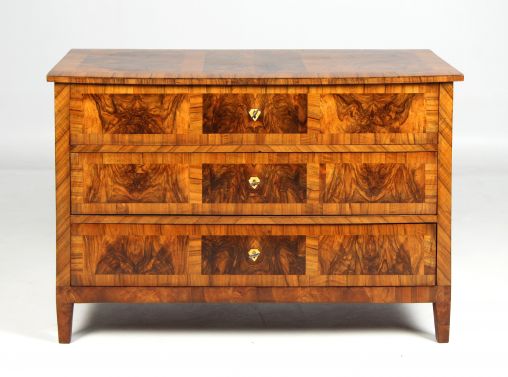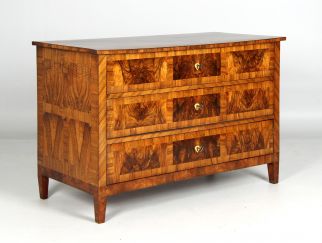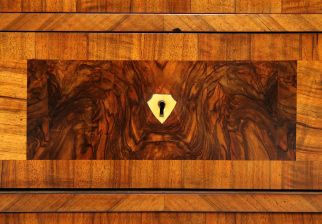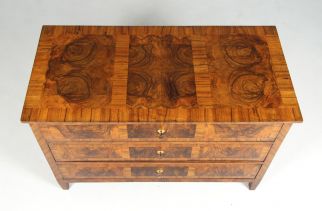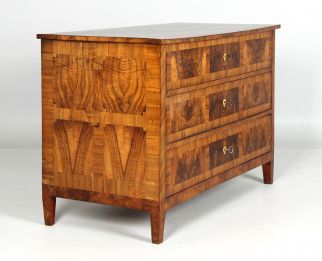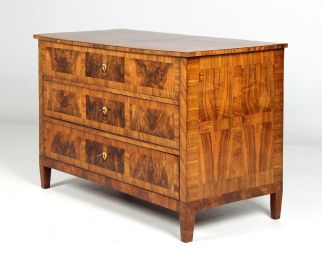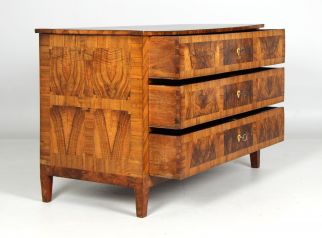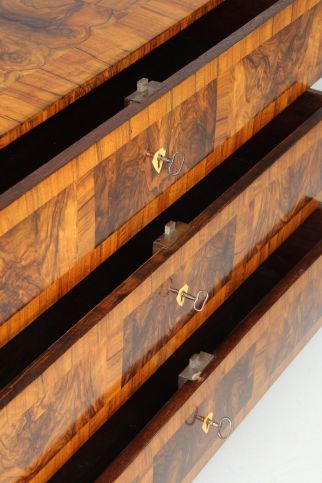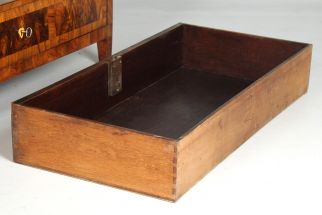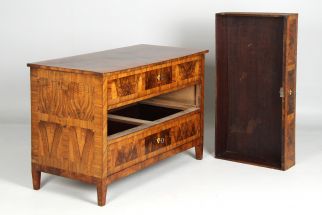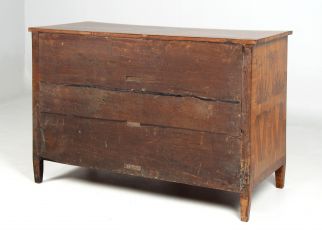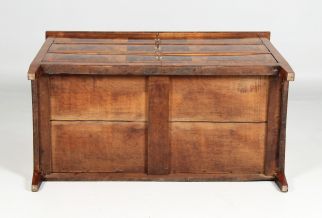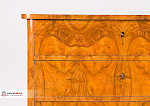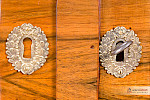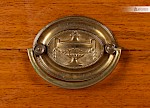Late classicist chest of drawers
Southern Germany
Walnut
early 19th century
Dimensions: H x W x D: 83 x 124 x 60 cm
Description:
Strictly cubist chest of drawers from the transitional period of German classicism, the so-called Zopfstil, to Biedermeier.
The drawer fronts are divided into three panels veneered in walnut root. The dark wood of the centre panel contrasts beautifully with the light-coloured, inlaid key plates in the shape of coats of arms. These fittings, which are certainly original, speak the language of the early Biedermeier period, as do the flush plinth section and the lack of handles and other fittings. The geometric organisation of the surfaces, on the other hand, is still in keeping with classicist taste. This design can also be found on the sides and, particularly beautifully with cross-cut stems in a mirror-image arrangement, on the top panel of the chest of drawers.
The construction of the carcase is worth mentioning, as it is rarely seen in this form. Massive mortised boards connect the crossbars to the back panel and thus ensure absolute stability. This - and the use of selected oak wood for the construction of the drawers - ensures that the drawers, which are only pulled by the key, still run smoothly and cleanly even today, after more than 200 years.
In addition to the original locks, all three original keys have been preserved.
Condition:
Refurbished, flawless condition with a classic shellac hand polish.
Article found under: Chests of drawers
Also interesting
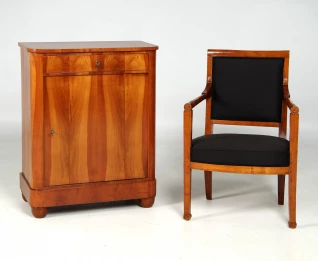
Small antique chest of drawers
Southern Germany
Cherry
Biedermeier around 1835

Small chest of drawers with marble top
France
Rosewood and others
Transition circa 1780

Pair of Empire candlesticks
France
Gilt bronze
around 1820
